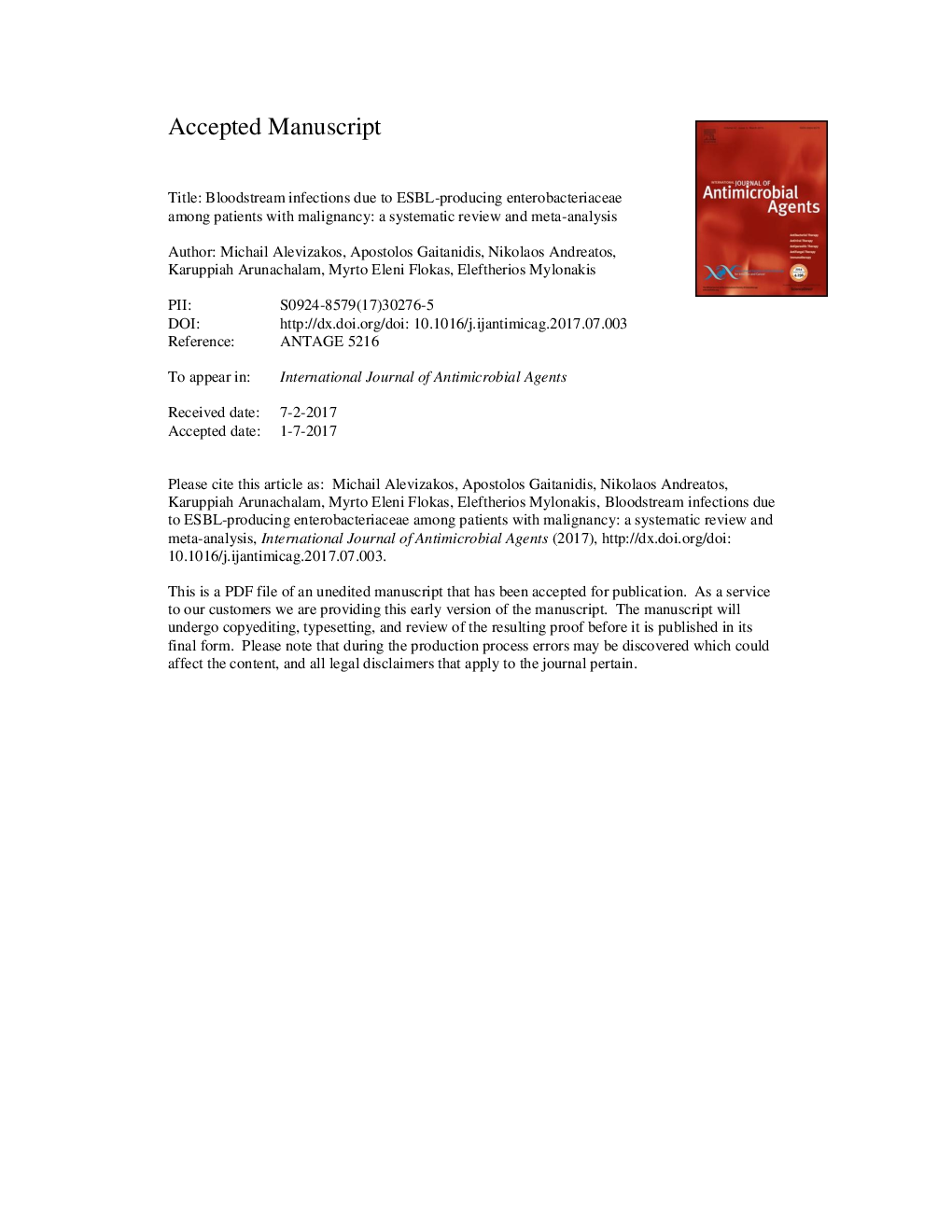| Article ID | Journal | Published Year | Pages | File Type |
|---|---|---|---|---|
| 8738777 | International Journal of Antimicrobial Agents | 2017 | 27 Pages |
Abstract
Extended-spectrum β-lactamase-producing Enterobacteriaceae (ESBL-PE) are an increasing cause of resistant infections among patients with malignancy. This study sought to estimate the prevalence of bloodstream infections (BSIs) caused by ESBL-PE in this population and to examine regional and temporal differences. The PubMed and EMBASE databases (to 30 April 2016) were searched to identify studies reporting ESBL-PE BSI rates among patients with malignancies. Of 593 non-duplicate reports, 22 studies providing data on 5650 BSI cases satisfied the inclusion criteria. Among all BSIs the pooled prevalence of ESBL-PE was 11% (95% CI 8-15%) and among Gram-negative BSIs it was 21% (95% CI 16-27%). Among patients with haematological malignancies, the pooled ESBL-PE prevalence was 11% (95% CI 8-15%), whereas no studies providing specific data on patients with solid tumours were identified. Stratifying per geographic region, the pooled prevalence was 7% each in Europe (95% CI 5-11%), the Eastern Mediterranean region (95% CI 4-11%) and South America (95% CI 2-14%), 10% in the Western Pacific region (95% CI 4-19%) and 30% in Southeast Asia (95% CI 18-44%). Importantly, there was a 7.1% annual increase in the ESBL-PE incidence (Pâ=â0.004). Overall, ca. 1 in 10 BSIs in patients with malignancy is caused by ESBL-PE and in some areas this rate can be as high as 1 in 3 cases. Additionally, the incidence of these resistant infections is rising. These findings should be considered when selecting empirical antimicrobial therapy and should prompt strict adherence to antimicrobial stewardship.
Related Topics
Life Sciences
Immunology and Microbiology
Applied Microbiology and Biotechnology
Authors
Michail Alevizakos, Apostolos Gaitanidis, Nikolaos Andreatos, Karuppiah Arunachalam, Myrto Eleni Flokas, Eleftherios Mylonakis,
